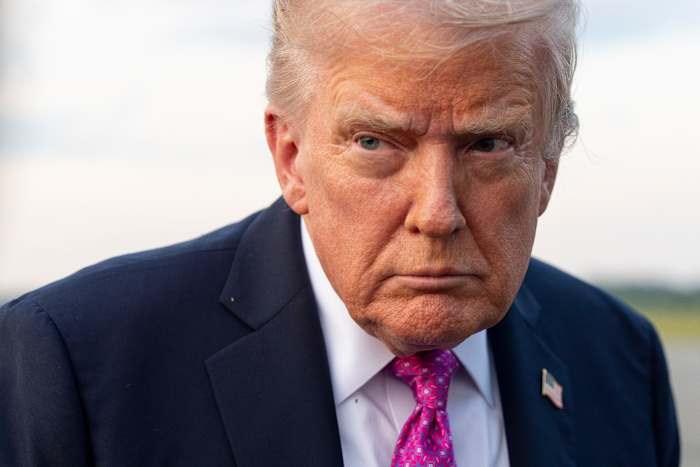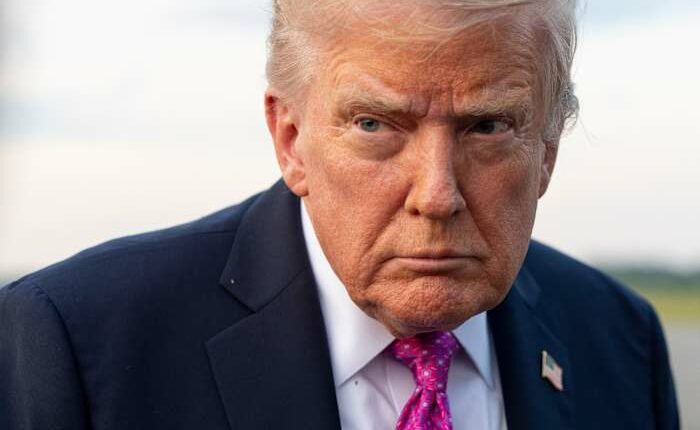Share this @internewscast.com

WASHINGTON – According to President Donald Trump, U.S. and Chinese officials had a successful meeting, reaching an agreement on a company that many young people in the U.S. were eager to preserve, as shared on his social media on Monday.
Trump’s statement hints that the company in question is TikTok, a Chinese-associated social media platform, which U.S. law mandates to be sold or shut down if no agreement is reached.
The Republican president has repeatedly postponed the deadline concerning TikTok’s future and was noncommittal about any deal when reporters questioned him on Sunday. He mentioned an upcoming conversation with Chinese leader Xi Jinping scheduled for Friday.
The Chinese government has yet to confirm Trump’s statements.
The content of Trump’s post was derived from a discussion held in Spain where U.S. Treasury Secretary Scott Bessent met with Chinese officials, including Vice Premier He Lifeng, with TikTok as a topic, according to the Treasury Department’s announcement.
Under Joe Biden’s Democratic leadership, Congress and the White House utilized national security reasons to enforce a ban on TikTok unless ByteDance, its parent company, sold its majority share.
However, Trump has continued to postpone any resolution for the social media app, having extended the deadline three times during his second term, with the next one set for September 17.
TikTok is one of more than 100 apps developed in the past decade by ByteDance, a technology firm founded in 2012 by Chinese entrepreneur Zhang Yiming and headquartered in Beijing’s northwestern Haidian district.
In 2016, ByteDance launched a short-form video platform called Douyin in China and followed up with an international version called TikTok. It then bought Musical.ly, a lip-syncing platform popular with teens in the U.S. and Europe, and combined it with TikTok while keeping the app separate from Douyin.
Soon after, the app boomed in popularity in the U.S. and many other countries, becoming the first Chinese platform to make serious inroads in the West. Unlike other social media platforms that focused on cultivating connections among users, TikTok tailored content to people’s interests.
The often silly videos and music clips content creators posted gave TikTok an image as a sunny corner of the internet where users could find fun and a sense of authenticity. Finding an audience on the platform helped launch the careers of music artists like Lil Nas X.
TikTok gained more traction during the shutdowns of the COVID-19 pandemic, when short dances that went viral became a mainstay of the app. To better compete, Instagram and YouTube eventually came out with their own tools for making short-form videos, respectively known as Reels and Shorts. By that point, TikTok was a bona fide hit.
Challenges came in tandem with TikTok’s success. U.S. officials expressed concerns about the company’s roots and ownership, pointing to laws in China that require Chinese companies to hand over data requested by the government. Another concern became the proprietary algorithm that populates what users see on the app.
Copyright 2025 The Associated Press. All rights reserved. This material may not be published, broadcast, rewritten or redistributed without permission.










